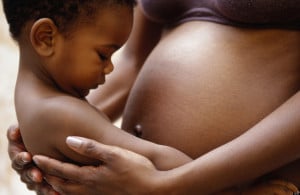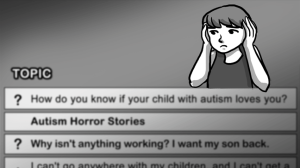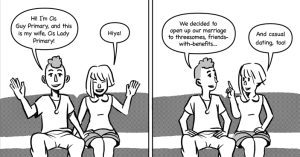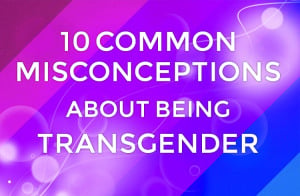
Source: Single Black Male
I’m currently pregnant for the third time, and I will be the first to admit that I’m not totally in love with this part of the parenting process.
I have several reasons for that, beyond all the emotional and physical annoyances that accompany the experience.
When someone is pregnant, their body is often viewed as public property. As a result, many people feel free to make wildly inappropriate comments about everything, from their appearance to their lifestyle choices to their medical decisions.
Similarly, family members, strangers, and colleagues seem to think it is appropriate to ask a pregnant person intimate personal questions that are simply none of their business or make comments that would be totally unacceptable at other times.
Once someone is pregnant, many people seem to think that the rights of the potential human outweigh the rights of the very real human who is already in the world (like this, this, and this).
So, here are seven things we might not think are a big deal to say to pregnant people, but can actually reinforce the idea that for 40 some weeks, a pregnant person’s role as an incubator trumps almost all else.
1. Should You Be Drinking That?
The message that it’s dangerous to consume alcohol when pregnant is pretty prevalent. Indeed, anyone who has ever wandered into woman’s bathroom at a bar or restaurant can probably recite the Surgeon General’s warning that “women should not drink alcoholic beverages during pregnancy because of the risk of birth defects and fetal alcohol syndrome.”
As a result, there is a tacit cultural acceptance that people have the right to monitor what substances a pregnant person uses.
Indeed, when I was pregnant the first time, a woman I didn’t know raced across the room at a Cinco de Mayo party to loudly admonish me for having a sip of my boyfriend’s beer. Her lecture didn’t change my view of the occasional drink while pregnant, but it sure sent the message that such drinks should be consumed out of the public eye.
But what does the research say about this?
Here’s the view of the Chief Medical Editor of Harvard Medical School’s blog:
“How clear is the medical evidence supporting strict abstinence from alcohol during pregnancy? Not very strong. And recent studies suggest pregnant [people] who have an occasional drink don’t harm themselves or their baby.”
A 2012 Danish study, for example, found that low to moderate alcohol consumption during pregnancy did not affect executive functioning among five-year-olds.
Many people are pregnant for a while before they know it. Does their alcohol consumption during the time they were pregnant, but didn’t realize it doom their child? No. They almost surely did no harm to their unborn children.
Not everyone agrees that you should avoid all alcohol if you are trying to get pregnant.
Some respected health agencies, like the United Kingdom’s Department of Health, indicate that having one alcoholic beverage a couple times per week during pregnancy is okay. Looking at the evidence, a strict recommendation to have zero alcohol during pregnancy seems extreme.
Obviously, anyone who is pregnant needs to decide if they are comfortable drinking alcohol, but acting as if the occasional glass of wine is akin to child abuse or assuming that people can’t be trusted just to have one beer once they are given the okay to do so, is utterly patronizing.
2. I Guess You’re Going to Get Married Now!
I happily spent a decade with the father of my first two kids without the legal protections of marriage, so I get pretty irritated when we assume that these two life events have to be joined — especially when that pattern is becoming increasingly less common!
For the last six years, over 41% of births were to unmarried people (the majority of whom were cohabiting with the baby’s other parent). This is a big leap from the 5% of unmarried parents that were giving birth in 1960, and even a notable increase from the 32% who were doing so in 1995.
Why are we still hung up on the first comes love, then comes marriage, then comes that whole baby carriage thing? I like to blame the pushing of values that are no longer held by a lot of people, and the force of the ever-expanding marriage industry. But that’s just me.
Marriage, itself, will not make someone a good parent, create a stable home life, or ensure a child’s success.
Plenty of couples have babies without being legally married, lots of folks are single parents, and a whole lot of others co-parent, or create unique family situations.
And let me (and some researchers) tell you, most of those kids are doing just as well as those whose parents tied the knot.
3. So, Who’s the Father?
Maybe you haven’t seen Sally in a while ,and when you hear she’s pregnant, you want a bit of a catch up. But the “Who’s the daddy?” question is problematic for a few reasons.
Sally might be a single parent.
Sally might be in a same-gender relationship, and though some queer moms do co-parent with dads, more often than not, sperm donors are just that; the other parent might not be male.
Maybe Sally’s situation is complicated, and she doesn’t want to get into the fact that the sex wasn’t consensual, or that she is doing an adoption, or that she just isn’t sure who the dad is.
Keep in mind: If there is another parent actively in the picture, and it is relevant for you to know about that, it will likely come up.
4. Are You Old Enough to Be a Mother? (Or: At Your Age, You Must Have Used IVF, Right?)
Pregnant teens are typically treated as social pariahs who are victims of bad sexual choices. Older pregnant people are often seen as selfishly having a baby that they are putting at risk for health problems and are assumed to have used expensive and even unethical means to become pregnant.
Both of these views reduce people a negative stereotype.
In the case of youth, there are numerous reasons some become pregnant and stay that way until babies are born. Here are four:
1. We make it nearly impossible for minors to get reliable birth control to prevent pregnancies, and then we deny them easy access to abortions.
2. The pregnancy might be intentional.
3. Young people may be stopped from using contraception by abusive partners who think that a baby will give them even more control over their partners.
4. Some may be planning an adoption.
When we glare at pregnant teens, shame them, and mutter that their child will likely end up an impoverished delinquent, and not, say, the President of the United States (like, for example, the current one who happens to be the son of a teen mom!), we set up young moms-to-be for failure.
On the other end of the spectrum are the assumptions made about pregnancies in older people. These have us clucking our tongues at their seemingly self-serving desire to establish themselves personally and professionally before having kids. Once a person passes some magical age, people often feel free to loudly speculate about how the pregnancy came to be.
And while those same people have probably benefited from any one of the thousands of medical interventions modernity has afforded us, using assisted reproductive technologies is often derided as uniquely unnatural.
People who end up parenting start that journey at wildly different times for vastly different reasons. As someone who is having kids across an almost ten-year spread, and under pretty different circumstances, I’m of the mindset that age itself is one of the least important factors in this whole process.
5. Why’d You Bother to Come Out as a Trans Man If You Wanted to Get Pregnant?
Though people often assume that a person’s body parts should function in tandem with their sex and gender, this assumption is pretty oppressive.
Indeed, expecting a person’s body to serve a specific purpose simply based on their biology has historically been a powerful tool of oppression and sexism.
When we apply this this line of thinking to transfolk, it also become a form of transphobia.
As a lot of us know, plenty of people’s bodies work differently than society expects. Contrary to popular belief, trans men and gender non-binary people can and do get pregnant. But in addition to having to deal with a lot of the same issues as pregnant cis-women, they face a unique and oppressive scrutiny.
A paper published in the journal Obstetrics and Gynecology found that pregnant trans men were often misidentified as female, subject to hostility, denied care, and even reported to Child Protective Services!
The result, in many cases, is isolation, depression, and for some people, the reappearance of discomfort with their gender even if those feelings had long ago felt settled.
The experience of pregnancy does not mean a trans person is not the gender they present as, and it is no one else’s business to try to tell someone otherwise.
6. Do You Think It’s Safe To (Insert Just About Any Activity Here)?
This country just loves fetuses! We pass laws protecting them, keep dead women on life support in the hopes they will still be able to incubate, and bombard pregnant people with a thousand dos and don’t in order to grow a perfect baby.
(The lack of concern for babies and children once they are born is a whole different story — consider our absence of maternity leave and affordable child care, our dismal rates of child poverty, and the small matter that 2.7 million kids now have a parent in jail, just to name a few issues.)
Today’s pregnant people face an ever-expanding list of dire warnings that reveal our countries’ fervor for prejudice. Recent ones: C-sections lead to obese children (something we are supposed to both care and worry about even before a potential child is born!), forgetting your Omega-3s and DHA leads to academically challenged ones, and taking Tylenol while pregnant has ADHD written in your kids’ future.
Telling a pregnant person not to do some seemingly minor thing might seem trivial, but policing their choices allows for an environment where it is acceptable to place more emphasis on the health of a fetus than on the health of the person.
As a result, extreme actions like imprisoning people during their pregnancies to “protect” fetuses or charging them with crimes for miscarriage and stillbirths can be justified.
7. I Would Never (Find Out the Sex, Get Genetic Testing, Have an Abortion, Do a Home Birth)
People make choices in pregnancy for a whole lot of reasons.
Your daily run while six months along might be great for you, but seem nightmarish to me. Just like my decision to take my doctor’s bed rest advice can sound like torture to you, but gives me the peace of mind that I need.
There are also countless cultural and socioeconomic differences that can affect how people experience pregnancy and birth.
For example, in an article in the journal Pregnancy and Childbirth on understanding the cultural impacts on childbirth practices, the authors found that differences between birthplace, race, ethnicity, and religion all affect people’s birth plans.
We often forget that people come at pregnancy and birth with very different histories and perspectives.
Keeping this in mind will help prevent those annoying comments about how having a baby at home is just asking for an emergency or that going to the hospital is a recipe for a C-section.
Pregnancy Doesn’t Negate Autonomy
It’s a given that most pregnant people want healthy babies. But acting as if pregnancy means that they are somehow less capable of deciding what is best for them and the human they are growing, and scrutinizing their choices during this process, isn’t helping anyone get to a healthier place.
All it is doing is legitimizing the idea that pregnancy erases a person’s autonomy, which is a very dangerous view that we all need to check!
[do_widget id=”text-101″]
Ellen Kate is a Contributing Writer for Everyday Feminism. She’s a health educator, sometime writer, and mom. After doing a BA in Women’s Studies in her hometown of Vancouver, Ellen moved to New York where she did a Master’s degree in Health and Human Sexuality Education. Ellen also runs About.com’s LGBT Teens site. Before that, she wrote for Planned Parenthood’s teen website and blogged about sex education for gURL.com. Follow her on Twitter @ellenkatef. Read her articles.
Search our 3000+ articles!
Read our articles about:
Our online racial justice training
Used by hundreds of universities, non-profits, and businesses.
Click to learn more
Most Read Articles
- « Previous
- 1
- …
- 30
- 31
- 32



















